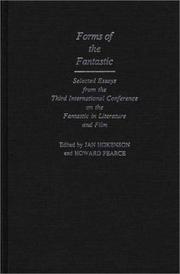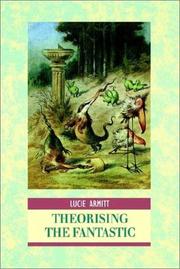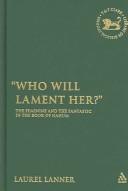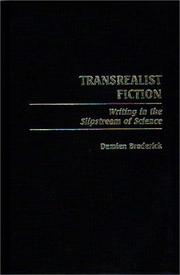| Listing 1 - 10 of 21 | << page >> |
Sort by
|

ISBN: 0313250359 Year: 1986 Volume: 20 Publisher: New York Greenwood Press
Abstract | Keywords | Export | Availability | Bookmark
 Loading...
Loading...Choose an application
- Reference Manager
- EndNote
- RefWorks (Direct export to RefWorks)
Arts --- Fantastic, The, in art --- Fantastic, The, in literature --- Art fantastique --- Fantastique dans la littérature --- Congresses --- Congrès --- Fantastique dans la littérature --- Congrès

ISBN: 0340605871 Year: 1996 Publisher: London Arnold
Abstract | Keywords | Export | Availability | Bookmark
 Loading...
Loading...Choose an application
- Reference Manager
- EndNote
- RefWorks (Direct export to RefWorks)
Book
ISBN: 1443816469 9781443816465 9781443810043 1443810045 1443810045 Year: 2016 Publisher: Newcastle upon Tyne, [England] : Cambridge Scholars Publishing,
Abstract | Keywords | Export | Availability | Bookmark
 Loading...
Loading...Choose an application
- Reference Manager
- EndNote
- RefWorks (Direct export to RefWorks)
Fantastic, The, in literature. --- Fantasy fiction --- English fiction --- Fantastic fiction --- Heroic fantasy (Fiction) --- Fantasy literature --- Fiction --- Fantastic, The (Aesthetics), in literature --- History and criticism.
Book
ISBN: 9780230608214 0230608213 1349374962 9786612260414 1282260413 0230616968 Year: 2009 Volume: *4 Publisher: Houndmills ; New York Palgrave Macmillan
Abstract | Keywords | Export | Availability | Bookmark
 Loading...
Loading...Choose an application
- Reference Manager
- EndNote
- RefWorks (Direct export to RefWorks)
Fantastic, The, in literature. --- Fantasy drama --- Theater --- History and criticism. --- Philosophy.

ISBN: 1281802263 9786611802264 0567543978 9780567543974 9780567026026 0567026027 Year: 2006 Publisher: New York : T&T Clark,
Abstract | Keywords | Export | Availability | Bookmark
 Loading...
Loading...Choose an application
- Reference Manager
- EndNote
- RefWorks (Direct export to RefWorks)
It is not surprising that non-academic bible readers largely ignore Nahum. Comprising only a few pages, it is easily overlooked in the midst of the twelve Minor Prophets. When a reader does stop in passing, the book appears to be brief, brutish, and uncomfortably violent. Looking more closely, however, readers may observe echoes of other much greater prophets, such as Isaiah and Ezekiel, perhaps even of the Psalms, and conclude that the book is a rather second-rate pastiche of other writings, although some rather brilliant poetry is woven into it. Who Will Lament Her? takes a fresh look at Nah
Fantastic, The, in the Bible. --- Bible. --- Nahum (Book of the Old Testament) --- Feminist criticism.
Book
ISBN: 3954876159 9783954876150 9788416922017 8416922012 9783954875504 3954875500 Year: 2017 Publisher: Frankfurt am Main : Vervuert Verlagsgesellschaft,
Abstract | Keywords | Export | Availability | Bookmark
 Loading...
Loading...Choose an application
- Reference Manager
- EndNote
- RefWorks (Direct export to RefWorks)
A través de los catorce capítulos que componen este libro se realiza un recorrido por lo fantástico español desde los primeros años del modernismo hasta el presente, y a través de sus diversas manifestaciones ficcionales: narrativa, teatro, cine, televisión y cómic, mostrando, además, las interrelaciones y mutuas influencias entre ellas, y trazando así las líneas que definen la historia y evolución de lo fantástico en la cultura española contemporánea.
Fantasy literature, Spanish --- Spanish literature --- Fantastic, The. --- Fantastic, The, in literature. --- Fantasy fiction --- Literatura fantástica española --- Literatura española --- El fantástico. --- El fantástico en literatura. --- Fantasía de ficción --- Fantastic, The (Aesthetics), in literature --- Fantastic, The (Aesthetics) --- Aesthetics --- Fantastic literature, Spanish --- Spanish fantasy literature --- History and criticism. --- Historia y crítica.
Multi
ISBN: 9781400870790 9780691607443 1400870798 9780691063010 9780691013404 0691607443 Year: 1976 Publisher: Princeton, New Jersey : Princeton University Press,
Abstract | Keywords | Export | Availability | Bookmark
 Loading...
Loading...Choose an application
- Reference Manager
- EndNote
- RefWorks (Direct export to RefWorks)
What exactly is the fantastic? In the twentieth-century world, our notions of what is impossible are assaulted every day. To define the nature of fantasy and the fantastic, Eric S. Rabkin considers its role in fairy tales, science fiction, detective stories, and religious allegory, as well as in traditional literature. The examples he studies range from Grimm's fairy tales to Agatha Christie, from Childhood's End to the novels of Henry James, from Voltaire to Robbe-Grillet to A Canticle for Leiboivitz. By analyzing different works of literature, the author shows that the fantastic depends on a reversal of the ground rules of a narrative world. This reversal signals most commonly a psychological escape, often from boredom, to an unknown world secretly yearned for, whose order, although reversed, bears a precise relation to reality.Originally published in 1976.The Princeton Legacy Library uses the latest print-on-demand technology to again make available previously out-of-print books from the distinguished backlist of Princeton University Press. These editions preserve the original texts of these important books while presenting them in durable paperback and hardcover editions. The goal of the Princeton Legacy Library is to vastly increase access to the rich scholarly heritage found in the thousands of books published by Princeton University Press since its founding in 1905.
Literature --- Fantasy literature --- Fantastic, The, in literature. --- Literary criticism --- History and criticism. --- General.

ISBN: 0313311218 0313003165 9780313003165 9780313311215 9798216027324 Year: 2000 Publisher: Westport, Conn. : London : Praeger, Bloomsbury Publishing,
Abstract | Keywords | Export | Availability | Bookmark
 Loading...
Loading...Choose an application
- Reference Manager
- EndNote
- RefWorks (Direct export to RefWorks)
Fiction --- Thematology --- Science fiction --- Fantastic, The, in literature. --- Realism in literature. --- Reality in literature. --- Neorealism (Literature) --- Magic realism (Literature) --- Mimesis in literature --- Fantastic, The (Aesthetics), in literature --- Science --- Science stories --- Future, The, in literature --- History and criticism --- Theory, etc. --- Authorship.
Book
ISBN: 9789004450288 9789004450271 Year: 2021 Publisher: Leiden;Boston Brill | Rodopi
Abstract | Keywords | Export | Availability | Bookmark
 Loading...
Loading...Choose an application
- Reference Manager
- EndNote
- RefWorks (Direct export to RefWorks)
"Le nouveau fantastique de Jean-Pierre Andrevon analyse les facettes étranges du fantastique de Jean-Pierre Andrevon, écrivain contemporain appelé le " King " ou " Lovecraft " français. Andrevon propose une nouvelle vision du fantastique ancré profondément dans le quotidien contemporain, en apparence monotone et banal, dans lequel évoluent aussi bien ses personnages que ses lecteurs. L'auteur révèle ainsi le revers angoissant du monde, qui devient une source d'horreur puissante car familière au lecteur : catastrophes naturelles (pandémies mystérieuses, désastres climatiques, fin de l'Anthropocène) et historiques (guerres, totalitarismes), problèmes sociaux et psychologiques (folie, psychoses collectives, solitude). Un signe emblématique du fantastique andrevonien est également son dialogue avec le cinéma d'horreur. English summary: Le nouveau fantastique de Jean-Pierre Andrevon analyses the uncanny facets of the fantastic by Jean-Pierre Andrevon, a contemporary writer called "the French Stephen King" or "the French H.P. Lovecraft". Andrevon presents a new vision of the fantastic, deeply rooted in contemporary everyday life, seemingly monotonous and banal, in which both his characters and his readers evolve. Thus, the author reveals a different, harrowing side of the world familiar to the reader, as it turns into a powerful source of horror: natural catastrophes (mysterious pandemics, climate-related disasters, end of the Anthropocene), historical tragedies (wars, totalitarianism), social and psychological problems (madness, collective psychosis, loneliness). Another hallmark of Andrevonian fantastic is its dialogue with horror cinema"--
Book
ISBN: 3110276542 3110276712 3110276720 1283857820 9783110276725 9783110276718 9781283857826 9783110276541 Year: 2012 Publisher: Berlin ; Boston : De Gruyter,
Abstract | Keywords | Export | Availability | Bookmark
 Loading...
Loading...Choose an application
- Reference Manager
- EndNote
- RefWorks (Direct export to RefWorks)
Even though the fantastic (in its most inclusive definition) has been a part of our culture for as long as it exists, it has not been a prominent feature of European academic interest. With its inherent transgressive moment the fantastic allows for an ideal space of the cultural negotiation of political, social and physical boundaries, which should place it at the center of popular cultural research, not as is the case, at its periphery. But the commencing boom of fantastic themes in contemporary media production has facilitated a paradigmatic change in research, prompting a wide interest in the fantastic in all its forms, from fantasy to horror, from fairy tale to science fiction. This volume addresses this growing interest by reviewing the status of research on the fantastic in Europe so far and by providing a necessary outlook for the future. In the essays current trends, such as the liminality debate, as well as established discourses, as for example on genre theory, are brought together to show interested researchers a network of interdisciplinary (from literary, media and social studies) approaches towards the fantastic.
Fantastic, The, in literature. --- Fantasy fiction -- History and criticism. --- Literature and society -- Europe. --- Science fiction -- History and criticism. --- Fantastic, The, in literature --- Literature and society --- Fantasy fiction --- Science fiction --- Languages & Literatures --- Literature - General --- History and criticism --- History and criticism. --- Fantastic, The (Aesthetics), in literature --- Fantasy. --- Science Fiction.
| Listing 1 - 10 of 21 | << page >> |
Sort by
|

 Search
Search Feedback
Feedback About UniCat
About UniCat  Help
Help News
News